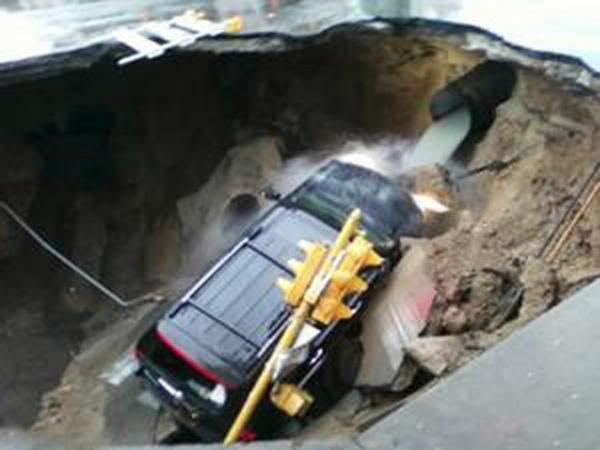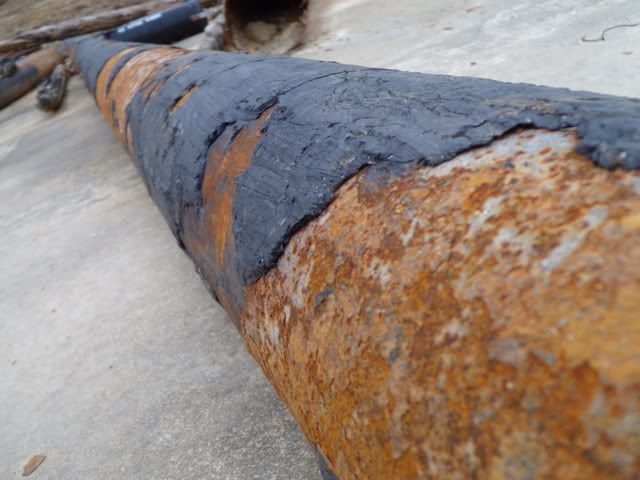As a water professional who has lived in the Metro Atlanta, Georgia area all my life, I’ve developed a sort of unique perspective on local happenings. A few years back, following all our Olympic glory and in the middle of a huge developmental boom, we began to see roads collapsing and washing away all over the city- it seemed like a new incident was broadcast every night on the news. Our 80+ year-old infrastructure was in trouble- and there was no money to fix it.
Mayor Shirley Franklin stepped up and took a bold stance- she became modern America’s first “Infrastructure Mayor”, committing to repair and upgrade the City’s infrastructure in her term of office.
Mayor Shirley Franklin stepped up and took a bold stance- she became modern America’s first “Infrastructure Mayor”, committing to repair and upgrade the City’s infrastructure in her term of office.
By in large, the citizens of the Atlanta got behind her- I mean- it sounded like a good idea, right?
Here’s the problem: it is very expensive, it takes a long time, and it's product is not visible.
So- what sounded like a good idea to everyone back then is becoming a hassle as we attempt to navigate our streets and get frustrated with the constant construction traffic. What sounded great before sounds less and less warm and fuzzy with every fire station that faces closure. Infrastructure, and Mayor Franklin, are becoming less and less popular.
As I write this article, the Georgia Legislature begins its 2009 session with a $2.5 Billion deficit, and Atlanta’s could top $80 Million- one of the largest in the nation. With lawmakers calling for a truly balanced budget, will this be the end of Atlanta's commitment to infrastructure?
Here’s the problem: it is very expensive, it takes a long time, and it's product is not visible.
So- what sounded like a good idea to everyone back then is becoming a hassle as we attempt to navigate our streets and get frustrated with the constant construction traffic. What sounded great before sounds less and less warm and fuzzy with every fire station that faces closure. Infrastructure, and Mayor Franklin, are becoming less and less popular.
As I write this article, the Georgia Legislature begins its 2009 session with a $2.5 Billion deficit, and Atlanta’s could top $80 Million- one of the largest in the nation. With lawmakers calling for a truly balanced budget, will this be the end of Atlanta's commitment to infrastructure?
There is another way- one I recently wrote about:
In Detroit, Michigan, their Mayor recently appointed Victor Mercado, a private water industry tycoon, head of the city’s troubled water works. While the system continues to run down, the city has reduced its repair workload, instead focusing its resources on disconnecting delinquent customers. They disconnected over 40,000 customers last year, and had proposed to double that number this year. Now that number will surely adjust upward in light of new economic stresses on Government and citizens.
Potentially, after 2 year’s time, that city will wake up to find nearly 200,000 households without water coupled with little or no positive action toward a rapidly failing infrastructure.
Running the system down, starving it of capital: these are the kinds of measures we usually see in the corporate world before a “hostile takeover”.
Once a system is too far gone, the citizens will accept any alternative, and government will be happy to get the “hot potato” out of their hands at any cost.
Like roads and bridges, water infrastructure is one of the basic services we believe should be available and provided by government. Without water, a city cannot flourish. Without water, people cannot live. Without government protecting and providing citizens access to this basic need, these Profiteers can and will sell their commodity to the highest bidder, and many hundreds of thousands- even millions- may find their interest taking a back seat to industry, by far the largest and most lucrative consumer of water in the world.
If you think this is not possible- take a look at what the World Bank is already doing in third-world nations all over the globe. Water is now treated as a global commodity, and multinational corporations are buying up the rights to that water as quickly as they can. Water which had, for centuries, completely provided for entire self-sustaining communities is suddenly becoming a luxury which poor families simply cannot afford.
Our American lifestyles are highly dependant on access to a lot of water. But on a level of necessity I see very few issues that could be more important than where our water will come from in the future. If we don’t know the answer to this question, we should begin to understand what is happening to infrastructure around us, and begin looking at all options to protect our own access. We should contact our legislators and let them know that we do not want any infrastructure to be privatized. We should ask them to commit to protect the rights of private citizens to collect water off their own property- including by wells and rain cisterns. We should let them know that we expect them to favor individuals’ access to water over corporate agendas. Water is fundamental to life. Are we really willing to give that up?
Potentially, after 2 year’s time, that city will wake up to find nearly 200,000 households without water coupled with little or no positive action toward a rapidly failing infrastructure.
Running the system down, starving it of capital: these are the kinds of measures we usually see in the corporate world before a “hostile takeover”.
Once a system is too far gone, the citizens will accept any alternative, and government will be happy to get the “hot potato” out of their hands at any cost.
Like roads and bridges, water infrastructure is one of the basic services we believe should be available and provided by government. Without water, a city cannot flourish. Without water, people cannot live. Without government protecting and providing citizens access to this basic need, these Profiteers can and will sell their commodity to the highest bidder, and many hundreds of thousands- even millions- may find their interest taking a back seat to industry, by far the largest and most lucrative consumer of water in the world.
If you think this is not possible- take a look at what the World Bank is already doing in third-world nations all over the globe. Water is now treated as a global commodity, and multinational corporations are buying up the rights to that water as quickly as they can. Water which had, for centuries, completely provided for entire self-sustaining communities is suddenly becoming a luxury which poor families simply cannot afford.
Our American lifestyles are highly dependant on access to a lot of water. But on a level of necessity I see very few issues that could be more important than where our water will come from in the future. If we don’t know the answer to this question, we should begin to understand what is happening to infrastructure around us, and begin looking at all options to protect our own access. We should contact our legislators and let them know that we do not want any infrastructure to be privatized. We should ask them to commit to protect the rights of private citizens to collect water off their own property- including by wells and rain cisterns. We should let them know that we expect them to favor individuals’ access to water over corporate agendas. Water is fundamental to life. Are we really willing to give that up?





No comments:
Post a Comment